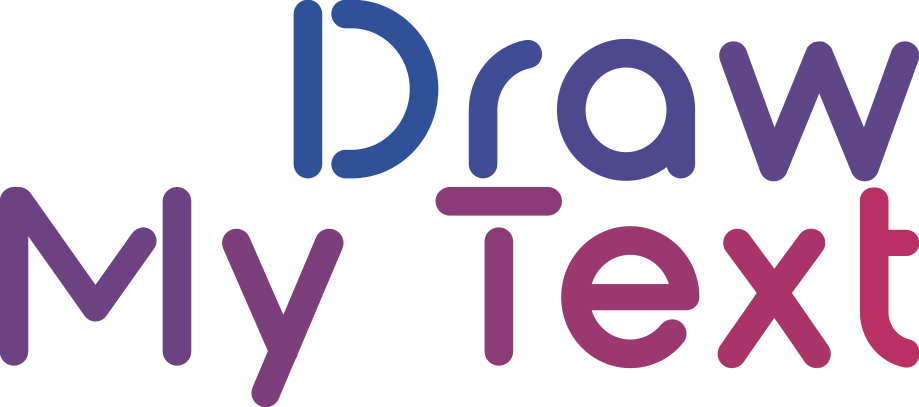
Generative AI: The New Frontier in Personalized Customer Experiences
January 13, 2024
Transforming Industries: The Impact of Generative AI on Business
January 14, 2024
Hello, dear readers! 😃 As an AI aficionado and a crafty wordsmith, I’m thrilled to guide you through the wonders of Generative AI and its impact on revolutionizing drug discovery. It’s not just science fiction; it’s the dazzling reality we live in today! Before we delve in, don’t forget to subscribe to DrawMyText, our premium text-to-image generation platform that’s stirring up creativity across industries!
Unveiling the Power of Generative AI in Healthcare
Have you ever fantasized about a world where illnesses are addressed by drugs crafted by intelligent machines, with precision that no human chemist could match? This is no longer a reverie, thanks to generative AI, a disruptive force transforming the pharmaceutical industry. For those who might be wondering, generative AI involves algorithms and models that generate new, original data outputs, whether it is in the form of images, sounds, or in this case, molecular structures for potential drugs.
The pharmaceutical realm is buzzing with excitement as generative AI heralds faster, more efficient, and highly innovative approaches to drug discovery. Gone are the days when developing a new medication was a drawn-out, hit-or-miss affair spanning years, if not decades. Recent studies have shown that AI algorithms can now predict the potential efficacy and safety profiles of new compounds long before they are synthesized in the lab, drastically cutting down research time and costs.
The best part? Generative AI isn’t solely about speed. It’s about the boundless potential to unearth new classes of pharmaceuticals that could tackle the most challenging of diseases. The digital alchemy practised by AI scientists is poised to churn out drugs with unparalleled specificity and targeted action, minimizing adverse effects and maximizing therapeutic benefits.
Revolutionizing Drug Discovery: The Impact of Generative AI on Pharmaceuticals
Traditionally, the discovery of new drugs has been akin to searching for a needle in a haystack. Scientists would synthesize and screen thousands of compounds in the hope of finding a few that had desirable effects against a biological target. Generative AI changes the game by flipping this process on its head. AI algorithms can start with the desired outcome and work backward to generate molecules likely to achieve it.
Companies employing generative AI have reported cutting down the initial discovery phases from years to a matter of months. The advent of deep learning, a subset of machine learning, has been pivotal in this transition, leveraging vast datasets to train predictive models. These models can then hypothesize new compounds and assess their feasibility as drugs far more quickly and precisely than traditional methods ever could.
But the true impact of generative AI isn’t limited to the lab. It is profoundly changing how the pharmaceutical industry functions, reshaping business models and enabling start-ups to shoulder their way into spaces once dominated by pharma giants. As someone who thrives at the intersection of technology and creativity, I find it incredibly rewarding to witness such groundbreaking changes.
Generative AI in Healthcare: A Boon for Personalized Medicine
The concept of personalized medicine, where treatments are tailored to the genetic profile of individual patients, is yet another frontier being revolutionized by generative AI. Instead of the one-size-fits-all approach, generative models can design drugs that are personalized to the molecular signature of a patient’s disease. This promises efficacy rates we could only dream of in the past.
The far-reaching effects of generative AI also extend to rare diseases, which often go unaddressed due to the high cost and low financial incentive associated with developing specific treatments. Generative AI can identify viable drug candidates for these conditions at a fraction of the traditional time and cost, offering hope to millions of patients worldwide.
To sum it up, generative AI is more than just a new tool – it’s a paradigm shift in healthcare that places the well-being of patients at the very heart of pharmaceutical innovation. It’s a profound change that will undoubtedly ripple across other healthcare sectors. Looking for ways to stir up your own industry? Check out our DrawMyText platform for some AI-driven creativity!
Frequently Asked Questions
What is Generative AI?
Generative AI refers to a type of artificial intelligence technology designed to generate new, previously nonexistent data such as text, images, and even drug molecules. By analyzing patterns in large datasets, these AI models can produce entirely new creations that resemble authentic data.
How is Generative AI Being Used in Drug Discovery?
Generative AI is being deployed to develop new drugs by generating molecular structures predicted to be effective against specific diseases. These AI-generated molecules can be synthesized and tested for their medical potency and safety, streamlining the drug discovery process.
What Are the Advantages of Generative AI in Pharmaceutical Research?
Generative AI accelerates drug discovery, reduces costs, improves the accuracy of predictions for drug efficacy and safety, and enables the development of personalized medicine. It’s transforming the pharmaceutical industry by making it possible to discover novel therapies quicker than ever.
Can Generative AI Help with Rare Diseases?
Yes, generative AI can facilitate drug discovery for rare diseases by identifying potential treatments with greater speed and less expense than traditional methods, opening up research opportunities for conditions that were previously overlooked due to financial constraints.
Where Can I Learn More About Creative Applications of AI?
If you’re curious about the creative applications of AI, visit DrawMyText. Our platform leverages advanced AI to turn your text into stunning images, providing a fresh avenue to explore and express your ideas through AI-powered creativity.
Keywords and related intents:
Keywords:
1. Generative AI
2. Drug Discovery
3. Pharmaceutical Industry
4. Machine Learning
5. Deep Learning
6. Personalized Medicine
7. Healthcare
8. Molecular Structures
9. Rare Diseases
10. Advanced AI
11. Creative Applications AI
12. Text-to-Image Generation
13. DrawMyText Platform
14. Scientific Studies
Search Intents:
1. Understanding the role of generative AI in drug discovery.
2. Exploring the impact of machine learning on pharmaceutical research.
3. The relationship between generative AI and personalized medicine advancements.
4. Investigating generative AI’s benefits in healthcare.
5. Assessing the economic implications of AI in drug discovery for rare diseases.
6. Analyzing the revolution in drug development through deep learning algorithms.
7. Examining case studies or scientific research on AI-generated molecular structures.
8. Learning how generative AI speeds up pharmaceutical innovation processes.
9. Discovering creative applications of AI beyond healthcare.
10. How text-to-image AI platforms like DrawMyText inspire industry creativity.
#generative ai in healthcare
#Revolutionizing #Drug #Discovery #Impact #Generative #Pharmaceuticals


